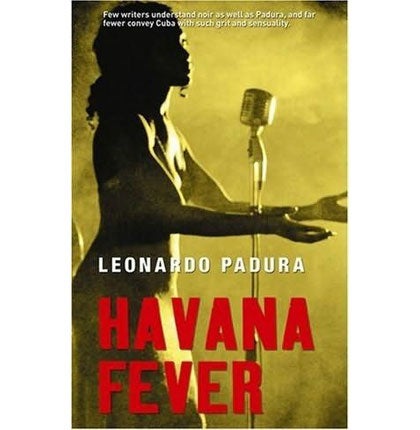Havana Fever, By Leonardo Padura, trans. Peter Bush
Death and detection in 1950s Cuba

Overwhelmed by poverty after the collapse of Russian support, Cuba in this novel has record levels of suffering and crime. In Leonardo Padura's mystery, former detective Mario Conde has yielded to a mighty passion and become an antiquarian book dealer, investigating the libraries of collectors now forced to sell treasures. In a still-beautiful decaying mansion guarded by a half-starved brother and sister, he finds a superb assembly of works from Cuban history.
Tucked inside one of the volumes he finds a cutting on the beautiful and mysterious Violeta del Rio, a bolero singer who had a wild success in pre-revolutionary Cuba. The Cuban bolero is powerful, passionate music, with lyrics drawn from the people. The reader will learn about its history, and how its flamboyant singers can age as richly as cognac.
Conde becomes infatuated with Violeta and a mystery surrounding her death. Why should anyone have committed suicide by swallowing cyanide in cough mixture? What was her connection with the aristocrats who owned this library?
His police skills and contacts serve him well as he delves into 1950s Havana, its mobsters, drug-pushers and glamour, a period which still fascinates modern Cuban writers. Present danger looms, however, as Conde learns from an elderly journalist who tried to investigate Violeta's death and suffered a mutilated hand.
Conde gets beaten up. Dionisio, one of the weird guardians of the library, is murdered and some books are stolen. Conde's investigations lead him through ramshackle Havana slums and back to the strange mansion where he makes a horribly gothic discovery – and unmasks the real criminal.
Padura is remarkable among crime writers: he understands that the real job is to dive into the deep wells of obsession, hatred and poverty from which murder springs. Yet, full of atmosphere and descriptions to savour, this is as much a life-affirming tribute to Havana as a fine novel of death and detection.
Join our commenting forum
Join thought-provoking conversations, follow other Independent readers and see their replies
Comments
Bookmark popover
Removed from bookmarks